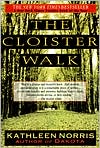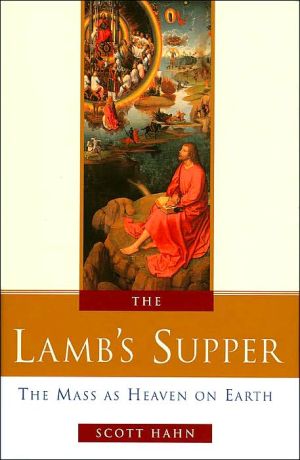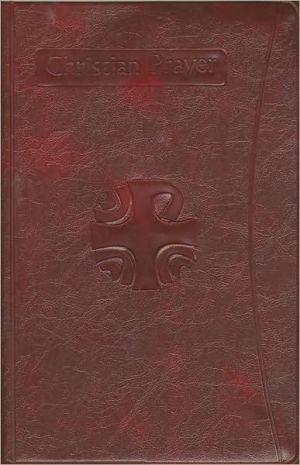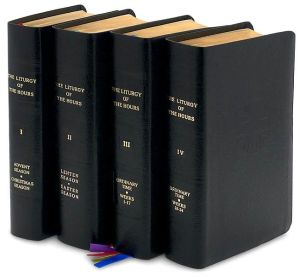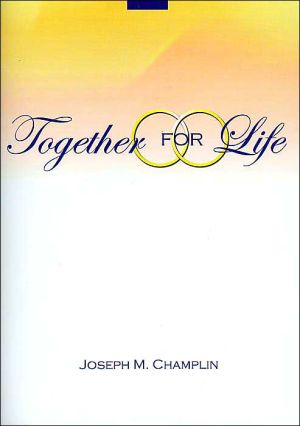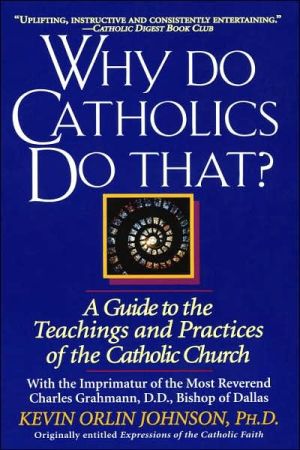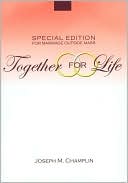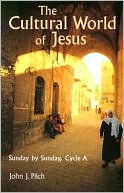The Cloister Walk
Why would a married woman with a thoroughly Protestant background and often more doubt than faith be drawn to the ancient practice of monasticism, to a community of celibate men whose days are centered around a rigid schedule of prayer, work, and scripture? This is the question that Kathleen Norris herself asks as, somewhat to her own surprise, she found herself on two extended residencies at a Benedictine monastery. Yet upon leaving the monastery, she began to feel herself transformed, and...
Search in google:
Why would a married woman with a thoroughly Protestant background and often more doubt than faith be drawn to the ancient practice of monasticism, to a community of celibate men whose days are centered around a rigid schedule of prayer, work, and scripture? This is the question that Kathleen Norris herself asks as, somewhat to her own surprise, she found herself on two extended residencies at a Benedictine monastery. Yet upon leaving the monastery, she began to feel herself transformed, and the daily events of her life on the Great Plains - from her morning walk to her going to sleep at night - gradually took on new meaning. She found that in the monastery, time slowed down, offering a new perspective on community, family, and even small-town life. By coming to understand the Benedictine practice of celibacy, she felt her own marriage enriched; through the communal reading aloud of the psalms every day, her notion of the ancient oral tradition of poetry came to life; and even the mundane task of laundry took on new meaning through the lens of Benedictine ritual. Writing with lyrical grace, Kathleen Norris here takes us through a liturgical year, as she experienced it both within the monastery and outside it. She shows us, from the rare perspective of someone who is both insider and outsider, how immersion in the cloistered world - its liturgy, its rituals, its sense of community - can impart meaning to everyday events and deepen our secular lives. Through her masterly prose and rare insight, the monastery, often considered archaic or otherworldly, becomes immediate, accessible, and relevant to us, no matter what our faith may be. Publishers Weekly The allure of the monastic life baffles most lay people, but in her second book Norris (Dakota) goes far in explaining it. The author, raised Protestant, has been a Benedictine oblate, or lay associate, for 10 years, and has lived at a Benedictine monastery in Minnesota for two. Here, she compresses these years of experience into the diary of one liturgical year, offering observations on subjects ranging from celibacy to dealing with emotions to Christmas music. Like the liturgy she loves, this meandering, often repetitive book is perhaps best approached through the lectio divina practiced by the Benedictines, in which one tries to "surrender to whatever word or phrase captures the attention." There is a certain nervous facility to some of Norris's jabs at academics, and she is sometimes sanctimonious. But there is no doubting her conviction, exemplified in her defense of the much-maligned Catholic "virgin martyrs," whose relevance and heroism she wants to redeem for feminists. What emerges, finally, is an affecting portrait-one of the most vibrant since Merton's-of the misunderstood, often invisible world of monastics, as seen by a restless, generous intelligence. (Apr.)
THE CLOISTER WALK\ by Kathleen Norris\ \ INTRODUCTION\ \ This reading group guide has been created to enhance your group's enjoyment of The Cloister Walk, which can be read as a chronicle of spiritual discovery or as a meditation, like daily passages of scripture. We hope it will prove to be a valuable accompaniment to Kathleen Norris's unique work --- "a gift of insight... one of those rare books too rich to race through" (The Kansas City Star).\ Part memoir, part meditation, The Cloister Walk is the movingly written and thought-provoking record of a married, Protestant woman's time spent in a community of men in a traditional Benedictine monastery in Minnesota. Any reader seeking a meaningful life - not necessarily a religious one - will be inspired by author Kathleen Norris's experiences among monks who, while so little understood in our society, are admirable bearers of tradition, incorporating in their lives the values of stability, silence, and humility that we so desperately need, yet relentlessly avoid. An award-winning poet, Kathleen Norris brings her appreciation for language and metaphor to the reading of Bible, especially the psalms, and shares the way she slowly, sometimes painfully, "let words work the earth of her heart." Gradually she learns much about simplicity, patience, forgiveness, the value of community, and the responsibility of freedom. It is in the sanctuary of the cloister that she at last achieves healing - finding peace in her sometimes troubled marriage and gaining a new understanding of her challenging life in the outside world. Above all, she discovers the force of spirituality and the beneficial change it can effect - that "love can be the center of all things, if only we will keep it there."\ \ ABOUT KATHLEEN NORRIS\ Praise\ p>Related Titles\ If you enjoyed The Cloister Walk, you'll want to read these other works by Kathleen Norris, all available from Riverhead.\ \ DISCUSSION QUESTIONS\ \ In the book's preface, author Kathleen Norris admits that in the past she has employed literature as a substitute for religion in her life (p. xvii). What are the similarities for her between a writing apprenticeship and a spiritual quest? Why does the latter prove so much more fulfilling? What other things do people use as replacements for religion, and why do you think they so often fall short of the kind of life epitomized by the Benedictines?\
Preface\ Dawn\ September 3: Gregory the Great\ St. John's Abbey Liturgy Schedule\ The Rule and Me\ September 17: Hildegard of Bingen\ September 29: Michael, Gabriel, Raphael, Archangels\ The Difference\ September 30: Jerome\ October 1: Thérèse of the Child Jesus\ October 2: Guardian Angels\ Jeremiah as Writer: The Necessary Other\ November 1 and 2: All Saints, All Souls\ November 16: Gertrude the Great\ Exile, Homeland, and Negative Capability\ New York City: The Trappist Connection\ Los Angeles: The O Antiphons\ Borderline\ The Christmas Music\ January 2: Basil the Great and Gregory of Nazianzus\ Passage\ The Paradox of the Psalms\ Baptism of the Lord: A Tale of Intimacy\ January 10: Gregory of Nyssa\ February 2: Candlemas/Presentation of the Lord\ Celibate Passion\ February 10: Scholastica\ Good Old Sin\ Acedia\ Pride\ Anger\ Noon\ Degenerates\ New Melleray Abbey Liturgy Schedule\ Chicago: Religion in America\ The War on Metaphor\ March 18: Mechtild of Magdeburg\ April 2: Mary of Egypt\ Saved by a Rockette: Easters I Have Known\ Triduum: The Three Days\ Triduum Notes\ Cinderella in Kalamazoo\ The Virgin Martyrs: Between "Point Vierge" and the "Usual Spring"\ Minneapolis: Cocktails with Simon Tugwell\ May 15: Emily Dickinson\ Maria Goretti: Cipher or Saint?\ Evening\ Genesis\ Road Trip\ Places and Displacement: Rattlesnakes in Cyberspace\ Learning to Love: Benedictine Women on Celibacy and Relationship\ The Cloister Walk\ The Garden\ The Church and the Sermon\ June 9: Ephrem the Syrian\ Small Town Sunday Morning\ At Last, Her Laundry's Done\ Dreaming of Trees\ Monks and Women\ July 11: Benedict's Cave\ A Glorious Robe\ Women and the Habit: A Not-so-glorious Dilemma\ The Gregorian Brain\ Oz\ Generations\ Monastic Park\ August 28: Augustine\ The Lands of Sunrise and Sunset\ The Nursing Home on Sunday Afternoon\ One Man's Life\ "It's a Sweet Life"\ Coming and Going: Monastic Rituals\ "The Rest of the Community"\ "The Only City in America"\ Night\ Acknowledgments
\ Publishers Weekly - Publisher's Weekly\ The allure of the monastic life baffles most lay people, but in her second book Norris Dakota goes far in explaining it. The author, raised Protestant, has been a Benedictine oblate, or lay associate, for 10 years, and has lived at a Benedictine monastery in Minnesota for two. Here, she compresses these years of experience into the diary of one liturgical year, offering observations on subjects ranging from celibacy to dealing with emotions to Christmas music. Like the liturgy she loves, this meandering, often repetitive book is perhaps best approached through the lectio divina practiced by the Benedictines, in which one tries to "surrender to whatever word or phrase captures the attention." There is a certain nervous facility to some of Norris's jabs at academics, and she is sometimes sanctimonious. But there is no doubting her conviction, exemplified in her defense of the much-maligned Catholic "virgin martyrs," whose relevance and heroism she wants to redeem for feminists. What emerges, finally, is an affecting portrait-one of the most vibrant since Merton's-of the misunderstood, often invisible world of monastics, as seen by a restless, generous intelligence. Apr.\ \ \ \ \ Library JournalNorris's acuity, writing talent, and ten years as an oblate at a Catholic Benedictine monastery have well equipped her to enlighten outsiders to the true ways and spirit of monastic life or, as she refers to it, the real world. Norris, a Protestant, describes how community life is the essence of humanity and celibacy an opportunity for transformation. She demonstrates the applicability of ancient scriptures and liturgies to modern times and tells how daily psalm-reading and prayer, ceremonies, and rituals helped her to overcome depression and gain inner peace. Norris, herself a poet, draws many parallels between the monastic and the poet, both of whom are fine-tuned to see the sacred potential in all things. Actress Debra Winger reads Norris's refreshing and highly inspirational book. For popular spirituality collections.Barbara J. Vaughan, State Univ. Coll. at Buffalo Lib., N.Y.\ \ \ Molly McQuadeShe writes about religion with the imagination of a poet...the story of her faith is attractively incongruous, and more than a little receptive to rebellion...some bridling is worth it to a reader when a writer is as original as Norris, a Midwestern, late-twentieth-century mystic. -- Chicago Tribune\ \ \ \ \ Robert ColesMs. Norris is subtle and shrewd...in The Cloister Walk, persisting in her wonderfully idiosyncratic ways, she gives us the result of an immersion into a liturgical world...Most of all, naturally, these pages offer the voice of Kathleen Norris, a person of modern sensibility who dares leap across time and space to make the interests and concerns of any number of reflective thinkers her own...She is one of history's writing pilgrims to offer a contemporary American one. Boldly willing to foresake any number of corporal trends and preoccupations in favor of this Walk, this searching expedition within herself. -- The New York Times Book Review\ \
